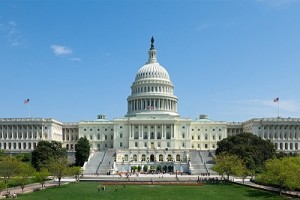8 If you see in a province the oppression of the poor and the violation of justice and righteousness, do not be amazed at the matter, for the high official is watched by a higher, and there are yet higher ones over them. 9 But this is gain for a land in every way: a king committed to cultivated fields.
Ecclesiastes 5:8-9 (ESV)
 Anyone inclined to romanticize government needs only to spend a few hours at the U.S. Department of Motor Vehicles (DMV), obtaining a driver’s license—first one line and then another, a form here, a test there, a photo here, and a check there. The veteran knows to bring outside reading material, for there is usually plenty of time to work through a book or a magazine or two while sitting on a hard plastic chair, if a chair is to be found at all. Somewhere in the process, the licensee is tempted to wonder if things would be this slow if it were handled by a commercial enterprise seeking to build customer loyalty and to earn a profit.
Anyone inclined to romanticize government needs only to spend a few hours at the U.S. Department of Motor Vehicles (DMV), obtaining a driver’s license—first one line and then another, a form here, a test there, a photo here, and a check there. The veteran knows to bring outside reading material, for there is usually plenty of time to work through a book or a magazine or two while sitting on a hard plastic chair, if a chair is to be found at all. Somewhere in the process, the licensee is tempted to wonder if things would be this slow if it were handled by a commercial enterprise seeking to build customer loyalty and to earn a profit.
The writer of Ecclesiastes feels our pain. In verse 8, he explains how the needs of people can get lost in the bureaucratic shuffle. As each layer of administration asserts its prerogatives, inserts its requirements, and takes its due, the humble citizen finds his life more complicated and his prosperity (and even survival) more problematic. In trying to satisfy the officials’ ideals, he suffers at the point of his own actualities.
Scarcely a day passes without the local newspaper reporting a citizen’s grievance against the government—whether over multiple tax audits, interminable road construction, falling test scores in public schools, or erratic postal delivery. The affluent can usually find a way to cope, but the poor, blue-collar worker is often stuck. When the city temporarily closes his subway stop, he may not have money for a cab or a payment for a reliable car, so his job is in jeopardy. How disappointing it is to hear that the station repairs could have been done earlier and without interrupted service if only a legislator had not held funds hostage until he gained a special dispensation for park improvement in his district.
Someone who cares for righteousness and justice may be tempted to despise government itself, counting it something of an “anti-Christ,” unsavory for church-going saints. But the writer of Ecclesiastes is quick to add that rulers are beneficial (v. 9). If a farmer is tempted to be bitter over environmental accounting or marketing regulations, he needs to consider the alternative. Without government, there would be no security for his boundaries, no roads for transporting his produce, and no system of monetary exchange. He would be reduced to bartering and sleepless nights sitting watch over his property.
Of course, a Christian may complain over government’s missteps, but there is no place for believers to dismiss the state itself. Unless the Church wants to get into the business of bridge construction, neighborhood crime patrols, currency printing, inter-state commerce regulation, establishment of safety standards for the genetic engineering of hardier crops, oversight of pesticides, and the licensure of drivers, then she should pay the state due respect.
Government can be a pain, but that pain is nothing compared to the suffering that comes with anarchy. This is why the Church should not only intercede for her officials, she should also give thanks for the very existence of officials, as hard as that might be after a trip to the DMV.